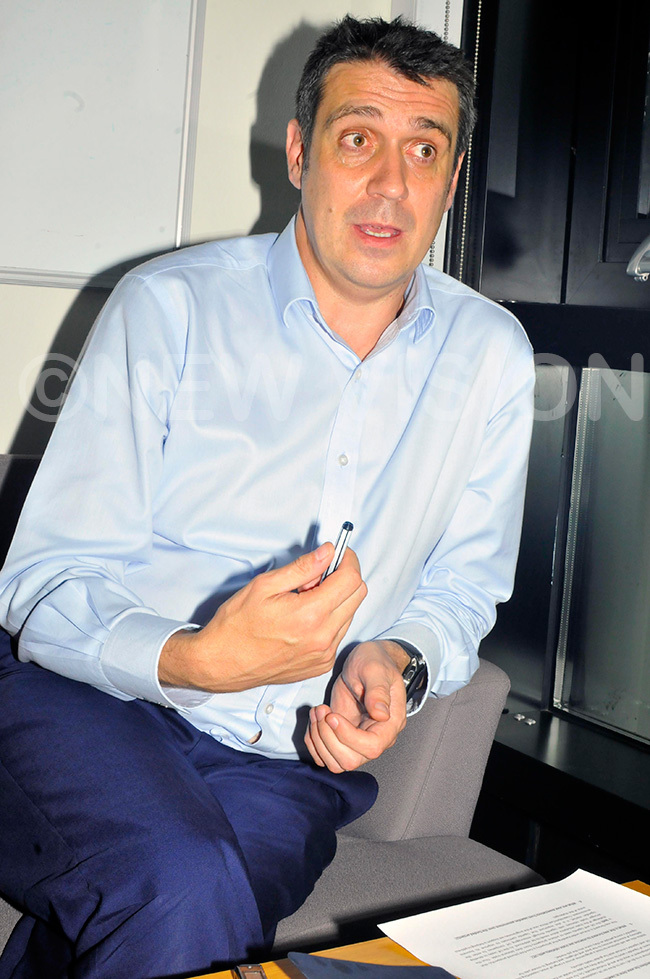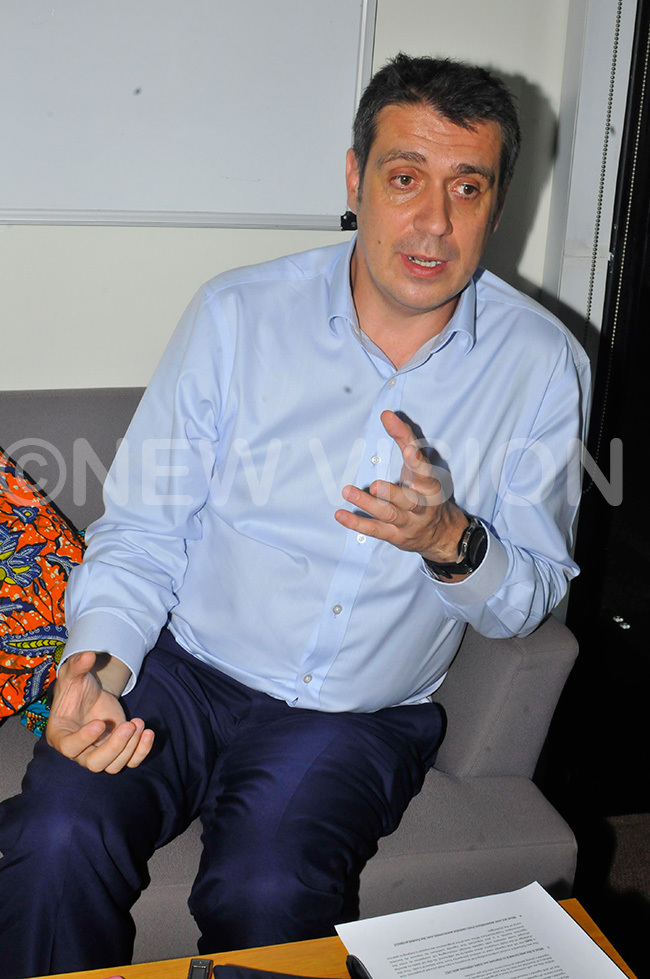UK warns on aid given to Uganda
Jul 30, 2019
I have a responsibility to UK taxpayers to ensure that the development assistance provided to Uganda is spent well for the purposes it was intended.

Andrew Ockenden is the new head of office for the Department for International Development (DFID) which is responsible for administering aid in Uganda. Umaru Kashaka asked him about aid related issues.
What was the biggest surprise when you first arrived in Uganda?
As someone who is keen on Twitter and social media, and with two teenage children who spend a lot of time on the internet, I have been amazed by the quality of the mobile and fibre internet connectivity. It presents a real opportunity for us to think about how we can support technology-based solutions to help Uganda's government deliver services. Please follow the High Commission on twitter @UKinUganda or me @misterock.
How are you settling into the new post as the department's third leader in three years?
I was told before I came of how warm and friendly Uganda's people are, and I haven't been disappointed. Both the Ugandan and British staff from across the High Commission have been very generous in helping me to understand the issues that we are seeking to support and introduce me to others who can help me to understand more. With this continued support, and a willingness to listen and learn on my part I hope I will settle in quickly.
What challenges have you faced thus far?
The main challenge for me and the UK's development assistance in Uganda is how we focus our resources to achieve the most we can. There are many worthwhile needs, and deciding how to focus our time and resources across these is a real challenge. We are working to achieve this through a mix of Ugandan and international experts across the High Commission, and in discussions with Government, Business, Civil Society and our intended beneficiaries.
What are your main objectives for your time in Uganda?
My primary objective is to do all I can to draw on UK capabilities and financing to support Uganda's development in ways that are of mutual benefit. So, for example, when we support Uganda's effort in tackling Ebola, we feed in the UK and Uganda's mutual wish for global health security. Within this we will continue to have a programme across a range of areas, supporting the delivery of essential services to the poor and refugees, and helping to create jobs for Uganda's young people as they come into the job market.

How can we improve our trade relations with the UK?
First, by mutual understanding that prosperity is two-fold (shared prosperity). That is both the UK and Uganda need to achieve prosperity from their bilateral trade. Thus the challenge of the trade imbalance above needs to be addressed. As the UK seeks to develop stronger trade relations with Uganda through encouraging UK companies to enter the Ugandan market, it is also important that Uganda continues to improve its business environment. Trade Mark East Africa, one of the programmes we support, is helping to address some of the challenges.
What are your expectations from Uganda over the funded projects?
I think it's important to think about expectations in a mutual way. I have a responsibility to UK taxpayers to ensure that the development assistance provided to Uganda is spent well for the purposes it was intended. I also have a responsibility to the priorities and agendas that they are setting for Uganda. For me to meet these expectations, I need to rely on the continued support of and communication with the Ugandan Government.
Uganda is aspiring to reach the middle-income status, what do we need to achieve that?
Middle-income status is a useful indicator that a country is getting better off, and is making the most of its human and natural resources. But it's important to remember that middle income is an average, and I think it is just as important for a country to grow in a way that benefits all. And actually, that type of inclusive growth is the type that can position a country to continue into the high-income bracket—as it has invested in the education and health of its population. So I would say it's important to keep thinking about how to bring all Ugandans on that growth journey.

How has Uganda fared in combating climate change?
Our Secretary of State has rightly identified climate change as a pressing priority. In many cases, it is a win-win in development terms. For example, with a country, as blessed with the sun as Uganda off-grid solar lighting is effective and has been very well received. As the UK, we have some leading technology solutions related to climate change, and we are continuing to work to think about how we can help Uganda more on this issue over the coming years.
How is the UK supporting Uganda in fighting Ebola?
The Ugandan government has made great efforts to prepare the country for Ebola. As you are aware we have now had three cases. The level of preparedness was clear, and the government played a strong role. The UK has been the largest single donor supporting these preparedness efforts—through helping strengthening healthcare in districts likely to be affected—so for example through providing the appropriate protective clothing and materials. Overall, the UK has contributed #7.5 million, or around half of the budget for preparedness activity. More generally it is a great example of the UK deploying its cutting edge bio-tech offerings—the UK has undertaken a range of emergency research to understand how Ebola spreads, and how to stop it, as well as supporting fast-track trials in Sierra Leone of a vaccine, which is being deployed in this outbreak.
